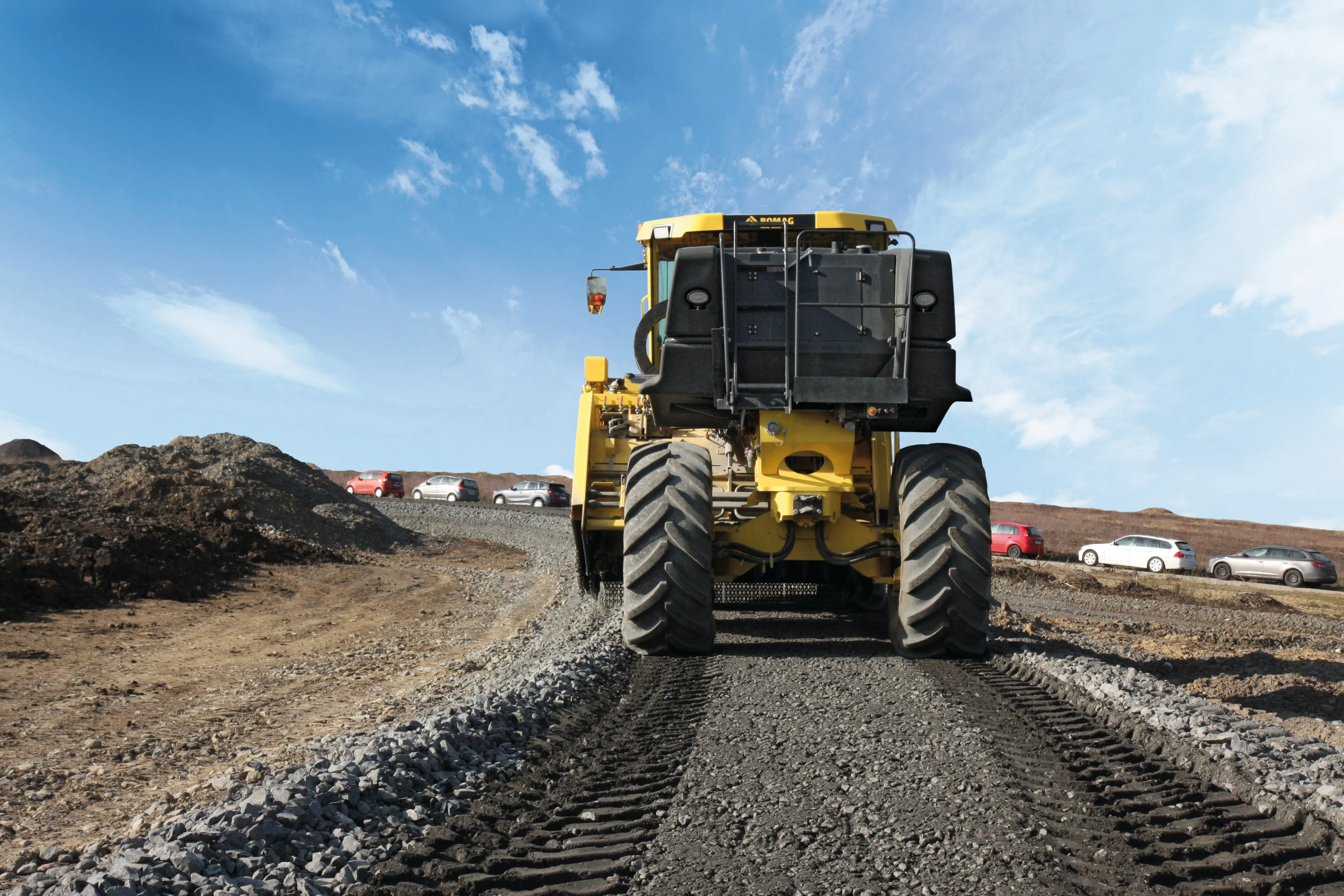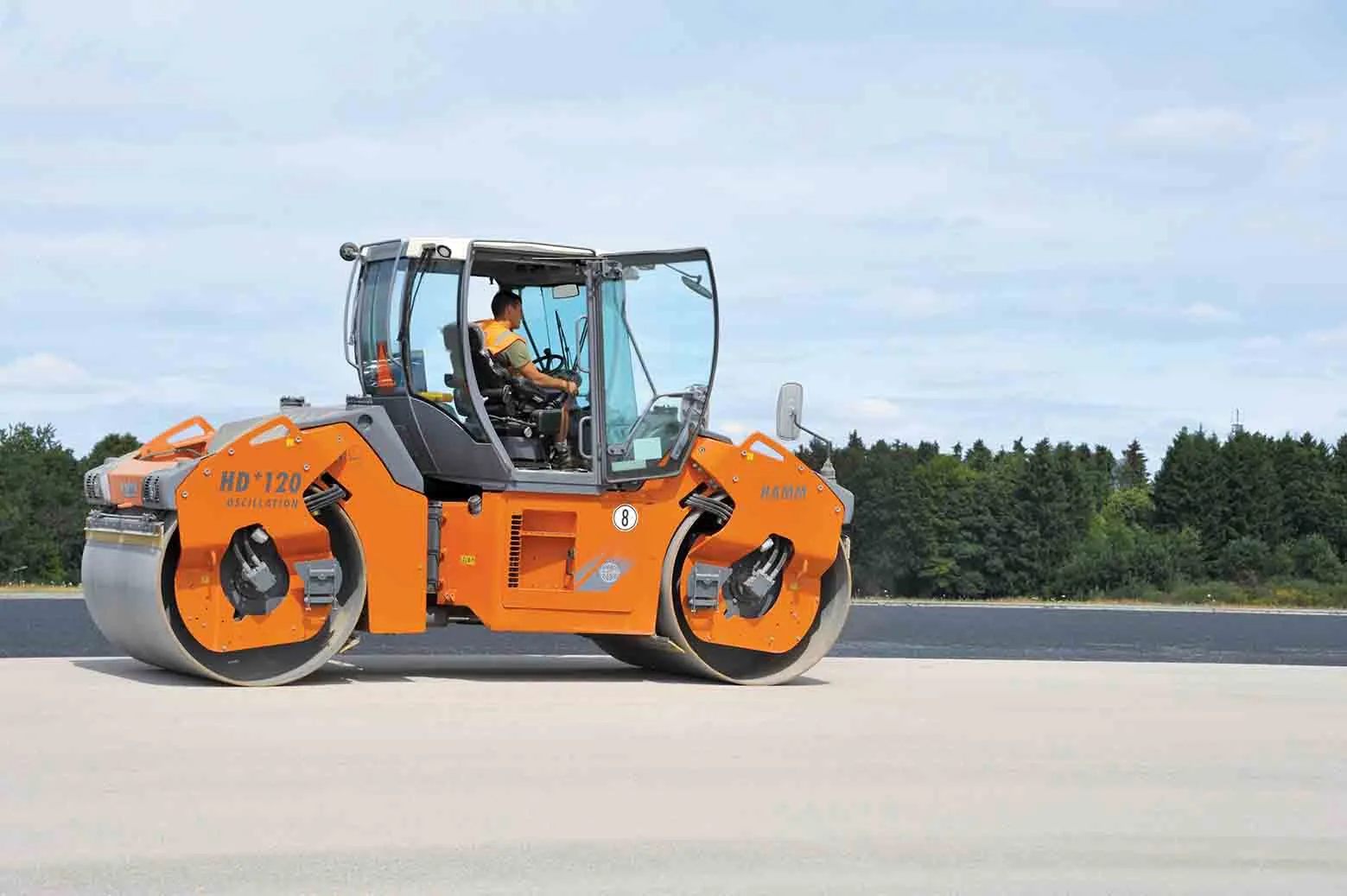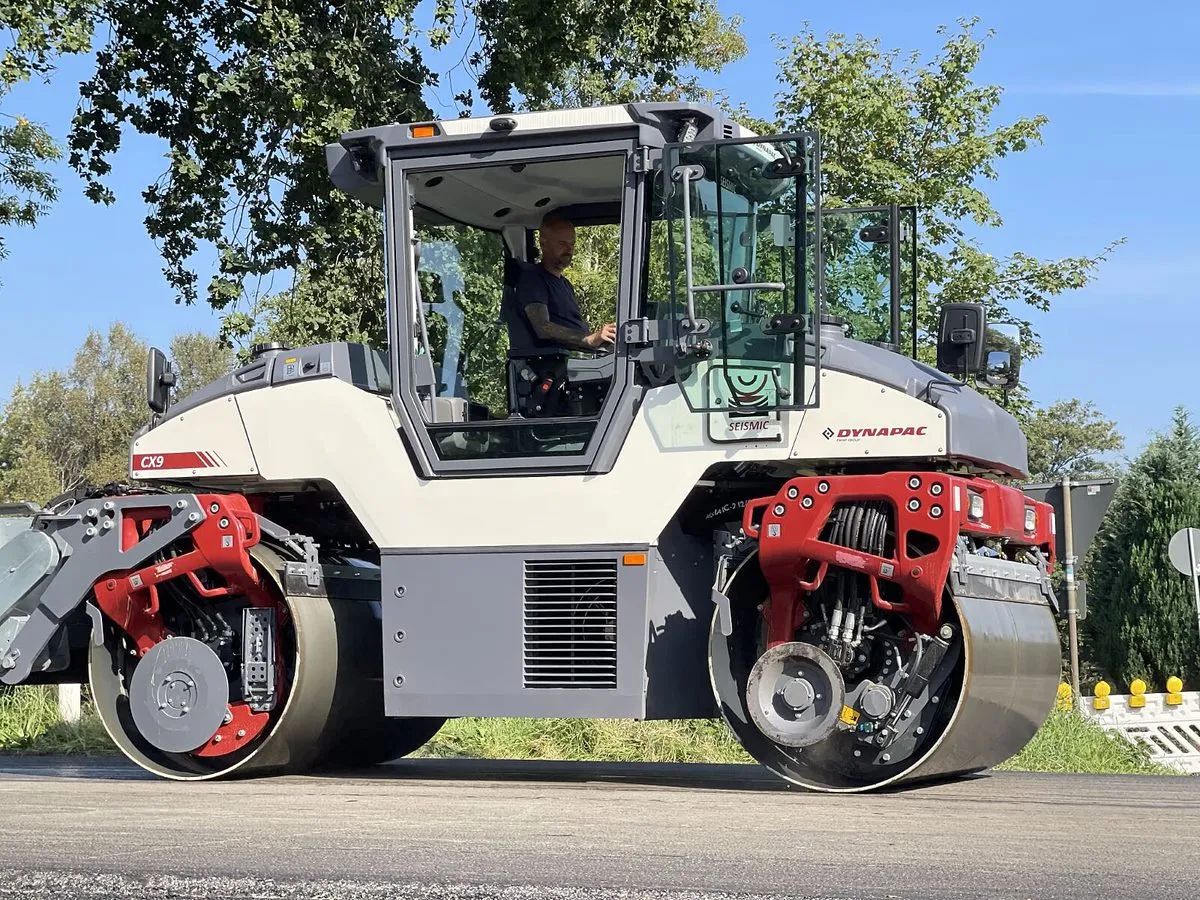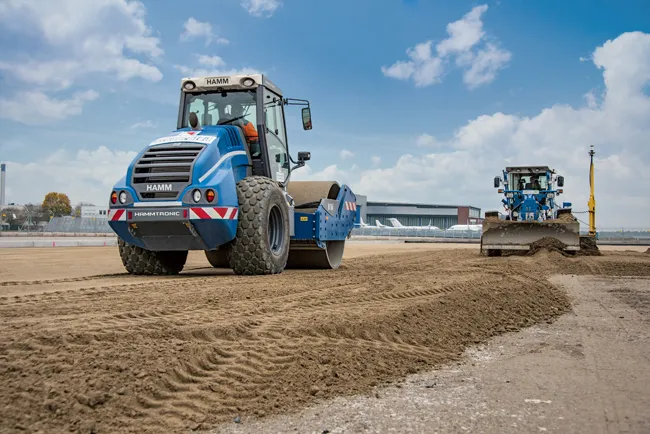
Every construction site has its special requirements and places different demands on people and machines. Since the start of series production, the RS 500 recycler/stabiliser has been able to contribute its versatility on a number of diverse construction sites. On the A 39 Autobahn near Winsen (Luhe) for example, where 8,000m² was processed/day at a working depth of 200mm, the production of a cement stabilisation by mixing in hydrophobic cement mainly required flexibility and the firm’s Flexmix technology.
The side-shift capability of its milling rotor to the left or right beyond the wheel rim is a major benefit. This allows the RS 500 to mill up to the marginal areas of a roadway.
The RS 500 also proves its efficiency with cold recycling and pulverising stabilised cement layers, areas of application that were also required on the A 39. The proven rotor drive concept allowed 200mm of cement stabilised soil and 100mm sand for a working depth of 300mm. A milling and mixing rotor driven by two planetary gears supplies maximum torque, while the continuously variable rotor speed reduces the tool and rotor wear to a minimum during the milling process. This enabled optimal results, namely a daily output of 7,500m², with a relatively low energy consumption at the construction site near Winsen. The hydraulic shut-off substantially lowers maintenance needs, delivering time and cost savings for the customer.
The same applied to the stabilisation of the soil by blending in lime on the B 87 federal road near Stadtilm in Thuringia. Although the ground conditions were less demanding than those in France, the RS 500's innovative and reliable drive system also helped to achieve an optimum result here. Approximately 12,000m² were stabilised/day at a working depth of 300mm.
But the RS 500 is not only remarkable for its performance, it also excels with respect to user-friendliness and safety. In the industrial area of Montpellier, the recycler/stabiliser was entrusted with another soil stabilisation project, where an area of 5,000m²/day at a working depth of 350mm was achieved. On this site, for example, the machine’s good visibility was an advantage. Because, due to the central, high working position and the extensive glazing of the ROPS/FOPS cabin, the driver has 360° visibility even without camera systems. This cabin provides the operator with a good view of the working edges and enables the machine to be manoeuvred safely. In addition, the seat can turn 270° and reduce fatigue during long working days.
Another requirement, especially when working on large projects or applications with daily changing sites, is faster transport. Here again, the RS 500 is versatile because of the height-adjustable cab. With a transport height of 3.1m, a total width of 2.55m, and a length of 9.5m, the machine can easily be moved from one operation to another on a low loader. This makes the RS 500 suited for road construction, offering solutions for a wide variety of requirements.









